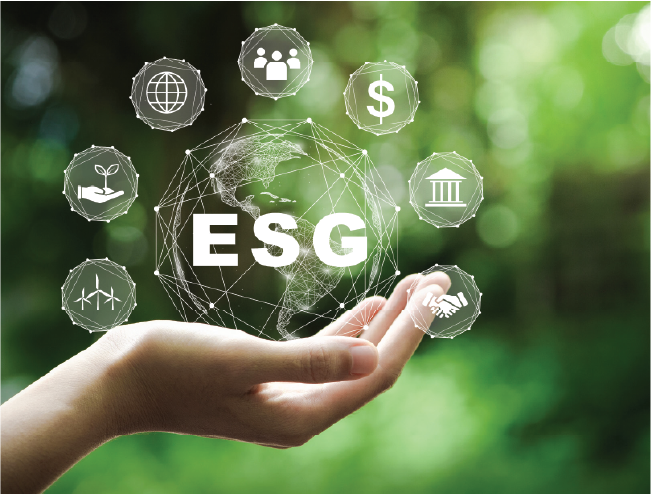



Our supply chain is a critical component of our reputation and extended impact. We collaborate with suppliers to promote long-term transparency, sustainability and ethical business practices. Our supplier base consists of 1515 SCM managed suppliers across our locations, subject to our local sourcing norm, our code of conduct and our human rights philosophy.
Our operations rely on Indian and international supply chains that span multiple tiers. We procure our supplies from original equipment manufacturers, either directly or through their authorised distributors. For general services, we depend on contractors who undertake end-to-end responsibility for projects. All our suppliers are expected to meet and comply with our environmental, ethical and social requirements as detailed in our Supplier Code of Conduct (applicable for all orders and contracts) and Mandatory Safety Standards (applicable for service contracts having H&S interphase). We also hold our suppliers accountable for managing risks in their operations and expect them to hold their suppliers accountable to the same high standards.
Our spend is spread across various categories based on business and customer needs:
Network equipment and services spanning 212 suppliers.
IT equipment and spend spanning 241 suppliers.
Managed services (standard and non standard purchases for customers) spanning 217 suppliers.
Access (last mile off the net and backbone) spanning 246 suppliers.
Services procurement (which includes purchases for Outside Plant Procurement, corporate services and passive infrastructure) spans 762 suppliers.
2We also categorise our suppliers based on their wallet share of spend in Tata Communications. Suppliers are divided into 3 categories, where the percentage of suppliers in each category is:

3We spend USD 795 Million (INR 6,591 Crores) for the procurement of equipment and services, with over 1,500+ direct suppliers around the world geographically to support our operations and meet customer needs:

1. SCM Managed Supplier Base is 1515. However, the same supplier supplies multiple categories based on product applicability. Tata Communications has 163 such suppliers.
2. ABC analysis is used to place suppliers in 3 categories. Where suppliers covering 80% of spend are considered in Category A, spending between 79% and 65% is considered in Category B, and the balance in Category C.
3. SCM Managed Supplier Base is 1515. However, the same supplier supplies multiple regions. Tata Communications has 50 such suppliers.
Demonstrating our commitment to stakeholders, we have established a comprehensive supplier code of conduct policy. This policy aligns with our core values of sustainability, innovation and technology, reflecting our pursuit of the highest ethical and sustainable business standards.

Ethics and Transparency

Labour and Human Rights

Environment, Health and Safety

Anti-Corruption and Anti-bribery

Information Security
To ensure responsible sourcing practices, we have introduced the Sustainable Supply Chain Framework (SSCF). This framework aims to reinforce our dedication to sustainability by examining risks in critical areas such as procurement decisions, supplier selection, supplier engagement, and supplier performance management. Subsequently, in the future we would be doing assessment for Strategic Suppliers. (Ecovadis) and implement appropriate mitigation strategies to address potential concerns. As part of this framework, the Company has defined four stages.
Due Diligence: All new RFPs (Suppliers) above a certain defined threshold value are being evaluated with a 5% weightage on Sustainability via the ESG checklist.
Monitoring: The business functional teams, including EOHS and Sustainability, undertake periodic audits on H&S aspects with our all-service providers, whereas HR is reviewing the compliances during the onboarding process of the suppliers. The Company also identified and engaged with its key strategic suppliers on climate mitigation aspects, who contribute towards Scope 3 emissions.
Assessment: The Company is working towards finalising the ESG assessment framework of its suppliers so that it can assess their Supplier performance on Environmental, Social and Governance aspects.
Reporting and Disclosure: : The Company is disclosing its supplier based performance via the annual SDR and the IR.
To evaluate the sustainability practices of our key suppliers, vendors, and value chain partners, we have incorporated an ESG checklist. This tool not only assesses the sustainability of our partners but also helps determine the sustainability scores of our key strategic suppliers.
In an effort to advance ethical business practices, uphold human rights, and prioritise the health and safety of employees, as well as protect the environment through effective management strategies, our Company has undertaken initiatives to assess the ESG (Environmental, Social and Governance) parameters of our key strategic suppliers in FY 2022.
To this end, we require all suppliers to adhere to the established Sustainable Supply Chain Policy set forth by our Company. These policies are compulsory and are integrated into every purchase order and contractual agreement with our suppliers, ensuring a consistent commitment to ethical practices and sustainability throughout our operations.

TAAP, a programme initiated in 2007, is aimed at addressing structural and social inequities in India by providing equal opportunities and inclusive growth to historically marginalised social groups, namely the Dalits and Tribals, Women and People with Disabilities in India.
Our Company is committed to promoting vendor diversity within our supply chain. In addition to creating a more inclusive and equitable business environment, this initiative provides indirect employment opportunities for historically marginalised communities, women entrepreneurs, and businesses operated by people with disabilities (PWD). Through these efforts, we aim to foster a more diverse and representative network of suppliers while simultaneously contributing to the economic empowerment of underrepresented groups.
Obtaining suppliers lists from DICCI and TICCI
Connecting with diversity forums
Collaborating with the marketing and diversity and inclusion teams to identify tie-ups with diversity forums.
Dalit Indian Chamber of Commerce and Industry that promotes business enterprises for Dalits
Tribal Indian Chamber of Commerce & Industry forum to promote the economic viability of Tribal community vendors.
A global network that connects women-owned businesses to qualified buyers around the world.
A connecting platform for Women to Network, Reskill, Restart their careers by providing jobs and flourishing startups.
A professional platform for women to network, learn and grow professionally.
Offers handcrafted apparel and lifestyle products created by rural artisans from across India.
Offers handcrafted apparel and lifestyle products created by rural artisans from across India
Once we have identified the list of diversity suppliers, they are classified into AA vendors, women-based and PWD. We then identify the categories of expenditure that can be engaged with diversity suppliers and keep track of the progress by doing monthly reporting on diversity spend and diversity suppliers.
We successfully completed the task of rolling out surveys to capture supplier diversity and capturing diversity data in our ERP system. Going forward, half yearly surveys will be conducted, and the tagging of diversity suppliers is now part of vendor onboarding system.
The Tribal Artisan and Entrepreneurship Development Programme in Nagpur aimed to support tribal entrepreneurs and expand their market reach. Tata Communications presented the TAAP Initiative, guiding vendors on entrepreneurial opportunities and onboarding. This facilitated the identification of key suppliers and initiatives like the supplier diversity survey and TAAP dropdown in our ERP systems demonstrate the positive impact of TAAP on inclusive and diverse supply chains.
There are a total of 239 suppliers as a part of our Supply chain diversity initiatives which constitutes of 3.67% of the overall spend In FY’23.
In FY23 ,we have 16 AA suppliers as part of our TAAP Programme.
